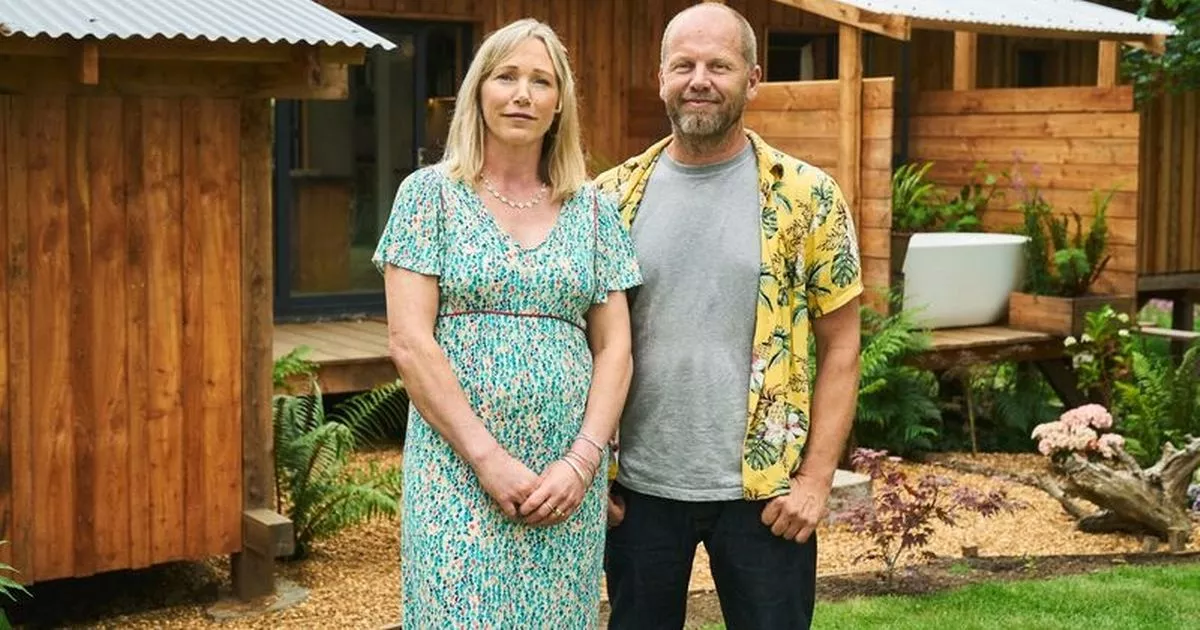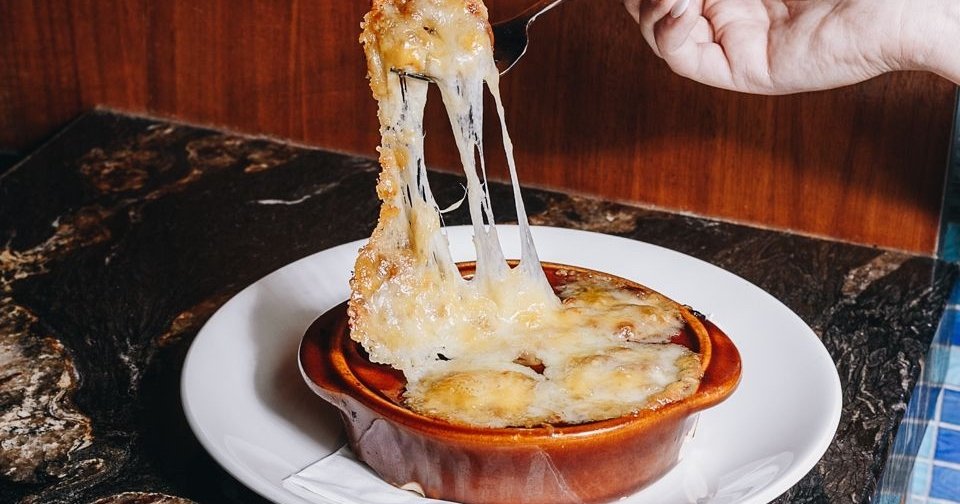Copyright walesonline

Nestled deep in the Pembrokeshire woodland, Abi and Marcus Beck have built their dream home; a handcrafted eco cabin that looks like it's grown from the earth itself.. However under Wales' pioneering One Planet Development (OPD) policy, the couple must follow a strict set of rules to keep it. Every year, the Becks monitored how they live - from how they grow their food to how they power their home and even how far they travel - and if they fail to meet the scheme's tough sustainability targets, they risk losing the woodland home they worked so hard to build. The idea for this life began years earlier, during a year-long trip around Europe with their children. "We did a year's trip around Europe in a campervan with the children when they were five and that was really fascinating to see how people lived in other countries, but also to see first-hand the impacts of climate change," Abi recalls. "Living in a campervan was also a lesson in how to live simply, conserving your resources and adapting to the local environment." That journey planted the seed for what would become their off-grid home - a place designed not just to exist in nature, but to work in harmony with it.. "In essence, the benefits are an affordable and sustainable way for people to live and work off the land," says Abi. "The One Planet Development policy is a forward-thinking scheme that allows people to build in places like woodland or open countryside, where it's normally not permitted, if they can prove they're living in a genuinely low-impact way that gives back to the ecosystems we depend upon." To make sure this balance works in practice, there are a few important rules that anyone applying has to follow, including using sustainable building materials, growing your own food and generating your renewable energy needs, as well as processing waste on-site and managing a land-based business. As Abi points out: "If everyone on Earth lived like the average European, we’d need three planets to support us. While some might find the idea of being monitored daunting, Abi insists it's not as heavy-handed as it sounds. "It's true many people find the idea of monitoring after planning has been granted difficult to get their head around, but it's more a form of accounting and reporting on progress," she explains. "For the first five years, you submit a self-evaluated annual progress report to the Local Planning Authority on the core aspects of the policy around food, energy, transport, waste and income generated to meet your basic household needs." The toughest part, she adds, comes before any building begins. "The biggest leap is at the planning application stage, with the management plan required to demonstrate how these needs will be met. It is a daunting prospect to detail all this, but applicants are genuinely committed and there is plenty of support. "The level of commitment required is probably why there has been relatively few OPD projects consented (just over 50) in almost 15 years since the policy came into effect in 2011." For Marcus, who built the cabin himself, the process was deeply personal - not just a construction project, but the fulfilment of a childhood dream. According to Abi, this was something that had been in his heart since boyhood - "a young boy who had grown up, playing in the woods and building dens." Those same woods, once his playground, would one day become home. "It was a lifelong ambition and felt like a legacy for him to build a family home in the woods he once played and built dens in, and where his father is now buried," Abi says. The weight of memory and belonging shaped every decision, every nail driven into place. But the build was not without challenges. "Choosing the most ecological material needed more research than conventional methods, could often be more expensive and required more versatility," Abi recalls. The couple's determination to tread lightly on the land meant rethinking nearly every stage of the process. Progress often depended on patience and ingenuity. "At one stage, over winter it rained for two months and water seeped through the wood-fibre insulation before we managed to get the roofing sheets on, but luckily the materials did dry out without any warping." Every part of the house carries the mark of that persistence. "It was a constant, endless process of problem-solving where we had to be creative and adaptable to what we had, rather than relying on the most conventional methods," Abi says. "You can see that in the details, like the wooden window reveals, rather than plastic beading." Indeed, the couple's efforts even caught wider attention, featuring on Channel 4's renovation programme, Grand Designs, a testament to the ambition of the build. Love dreamy Welsh homes? Sign up to our newsletter here What made it even more impressive was the price. Their self-build came in at £150,000 - over their original £100,000 budget, but still incredibly low for a project of its scale. "That's still low and much more affordable than the average self-build or home featured on Grand Designs," Abi says. "Our build costs were £1,250 per square metre - compared to more than £2,000 per square metre for a typical self-build in the UK." The rewards of their efforts are immediately felt in everyday life. "Our £200 a month electricity has disappeared overnight for one thing!" Abi says. "Being off-grid and powered by solar and batteries means we're not having to worry about that, or heating costs, as we have a wood fired boiler. We're still paying a small amount for some cooking gas, but the plan is to phase that out and replace it with biogas." Abi believes anyone can embrace this way of life - if they have the right mindset. "I think the only real skills required are resilience and adaptability," she says. "It's open to people from all walks of life… it's about working to your strengths and in keeping with the land, and then just enjoying the journey of a work in progress!" While off-grid living requires forethought and awareness, Abi doesn't see it as a sacrifice but more of a change in mindset. "You have to be more aware and mindful of what you're using and think ahead more, but I'm not sure if that's a downside," she says. "I don't feel like we’re missing out on anything, it's more just a mindset change in how you approach things." As winter approaches, the couple are preparing to see how their systems hold up in the colder months. "This winter will be a real test, to see what works, and what we might need to improve - but that's exciting more than anything else!" Abi says. For now, they're content living quietly among the trees in the home they built with their own hands - having seen very little changes to their everyday life. "We still live a modern family life, but in a wonderful, very special location," Abi reflects. "Now we've built the house, that's the foundation, and we now need to focus on our longer-term five-year plans for the land and our business."



